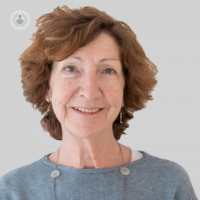Personality disorder obsessive-compulsive
Written by:The personality is the psychological equivalent of the physical appearance of a person, we do not choose voluntarily and distinguishes us from childhood. It is what makes you think, feel and we behave in a certain way in our day.
 Personality is a mixture of inherited traits and environmental influences. The healthiest thing is that we maintain flexible and adaptable to the circumstances with which we we encounter throughout life. When r asgos this personality hinder the flexibility needed for a "normal" operation, due to its stiffness, and does not allow an adaptation to these areas (academic, social and family or labor), from here we speak of a disorder personality or TP.
Personality is a mixture of inherited traits and environmental influences. The healthiest thing is that we maintain flexible and adaptable to the circumstances with which we we encounter throughout life. When r asgos this personality hinder the flexibility needed for a "normal" operation, due to its stiffness, and does not allow an adaptation to these areas (academic, social and family or labor), from here we speak of a disorder personality or TP.
Types of personality disorders
There are a wide variety of disorders and can be grouped into three broad categories:
- The rare, eccentric, isolated (paranoid, schizoid, schizotypal).- The emotionally overwhelming, overflowing, colorful (histrionic, narcissistic, antisocial and borderline or borderline).- The dominating them anxiety, fear and emotional repression (dependent, avoidant and obsessive-compulsive).
What are the features of the TP obsessive-compulsive?
This type of disorder refers to people concerned about the order and are extremely time stiffness. In their planning, they adhere to the rules and supervision. The main features are:- Little ability to display emotions of affection and tenderness.- A concern for perfectionism that prevents a vision or overall understanding of the situation.- Insistence that others submit to his "best or only way to get things done things."- Excessive devotion to work and productivity, reaching the exclusion of leisure and pleasure. Some are so busy in their work, which almost never enjoy what they do. - Indecision due to thorough and comprehensive analysis of each option and effort to make the "perfect" nonexistent decision. They leave nothing to chance, and that chance could be wrong.- Feelings like anger, sadness or anger are not allowed to emerge.
Treatment
Although the aid of an anxiolytic or antidepressant is necessary at first, the best treatment is long-term psychotherapy. The best therapy is based on "mindfulness" which focuses on the here and now, emphasizing the emotion, the feeling instead of concrete thinking where they are always located. When an improvement of the patient is achieved, it is good to follow with group therapy, to understand how your personality contributes to her unfulfilled relationships.
Should distinguish this type of TP respect to OCD or OCD. The latter refers to people with real obsessions and / or compulsions, they are very unpleasant and intrusive in spite of his will. Although sometimes coincide, and can give the two diseases in one person, OCD is much more disabling and therapeutic approach of OCD is different.


